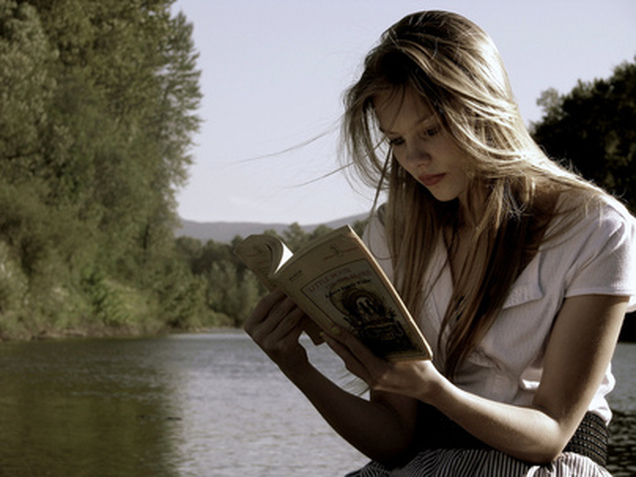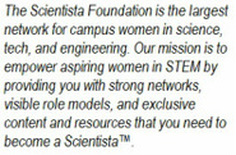|
11/1/2011 0 Comments The Use of the HumanitiesBy Katie Banks I am an aspiring mathematician who studies English literature too. (Let me respond to the commonest reaction: Yes, really. Sure, it’s kind of funny.) I spend most of my free time writing and in writing workshops, and there are a surprising number of science students in these workshops. My research experience so far is split between an REU in mathematics and archival work in the history of math for a literature professor. These studies need not have anything to do with each other, but they do. I teach and conduct research differently because of my humanities study—and since discussions have led me to conclude that my experience is common, I would like to offer my own entry in the ancient genre of defenses of the humanities: this time for science students. Let me first say what my argument is not. I have no stake in the debates over what constitutes a proper liberal arts education. I am not advocating for the study of humanities as something that makes us better people, more effective doctors, or personally enriched. The advocates of “medical humanities” have already made their strong case for the value of a humanist education. I believe all those defenses of the humanities too—but here, my concern is only the usefulness of exposure to teaching and scholarly methods in the humanities for the aspiring scientist. Broadly, there are three uses I’ve found: finding good questions to ask, awareness of history and context, and attention to process. For all that we shun it in our formal discourse, subjectivity is at the heart of what scientists do, designing research programs, formulating hypotheses and interpreting results. Indeed, without intelligent—and subjective—interpretation, we would only have a mess of data. The greatest bias comes not from our natural impulse to confirm what we suspect while we interpret our data, but from what we chose to look at in the first place, and what rules and methodologies we consider valid. As the biologist and writer Stephen Jay Gould has put it, “the human mind seems to work as a categorizing device (perhaps even, as the French Structuralists argue, as a dichotomizing device)…[which] causes us particular trouble when we need to analyze the many continua that form so conspicuous a part of our surrounding world.” A scientist who can keep in mind how we tend to theorize and take steps to resist the limiting habits will be a better researcher than one who does not thoroughly examine the assumptions underlying our hypotheses because only a few occur to her. Above all, we must be aware of the rationale behind our divisions: Gould reminds us, “these divisions are not neutral: they are established for definite purposes by partisans of particular viewpoints.” One who knows why she divides the way she does can defend her viewpoint better. In the study of literature, there is essentially no new data: the emphasis is thus on generating questions to ask and interpreting the texts in accordance with some defensible criteria of rigor. The basic difficulty in writing an analytical paper on a novel is sifting through enormous complexity and detail to find the important parts, choosing what evidence to look at and arguing why it should be looked at; this is excellent mental training for many of the everyday jobs of the scientist, from defending a research program in grant proposals to coping with immense complexity and messiness in real experiments to arguing which hypotheses should be tested and what constitutes evidence for or against them. All the evidence gathered together in the final paper is transparently for or against some position—your argument. In such conditions, the subjectivity of the questions you ask and the artificiality of the categorizing mind are hard to ignore for long, and if you take rigor seriously (we’re not talking about people who BS their way through a paper, which is certainly possible and common) you are forced to articulate why your methods are valid for what you want to study. That kind of interpretive sophistication is not something we ask of science students until much later, after they have re-derived, within a guiding framework, many of the standard results of the field obtained with standard methods. Early training in maintaining rigor under difficult and confusing conditions is valuable to the scientist, insofar as the conditions of real scientific research are difficult. The basic thing taught in literature classes is a new (and unnatural) way to read: actively, always mindful of how to respond to what’s read, connecting the different parts of a text, moving fluidly between close details and larger context. At the heart of this new way is constant vigilance for an interesting question or argument: that same critical tendency, transferred to scientists, can spark questions that one might not have thought of, whether scientific hypotheses or questions of professional practice. The need for this was brought home to me at my last conference on women in mathematics, where audience members at a panel were timid in asking questions, finally going through the repertoire of expected questions—“how do you balance work and family life? Have you ever experienced discrimination as a woman in science? What’s your advice to aspiring women in science?” Finally, one presenter said (paraphrased) “I can’t answer that question! I don’t balance work and family at all! It’s crazy! But when I’m home with my baby I love being a mother, and when I’m at work I love research, and I’m lucky enough to have both.” We need vital and probing questions to get vital answers like these that can really help us. Beyond what scholars do in the humanities, the teaching practices in humanistic fields—where seminars and workshops are as much a part of the scene as standard lectures—have much to offer the aspiring scientist. The tendency to question received wisdom from the start helps students understand how messy our state of knowledge is and how to work with it. The historical approach, putting work the students do in its broader context, would give science students the historian’s version of our profession’s history and not the scientist’s abridged, mythological one. It is professionally and personally useful to grasp how messy the history really is, and to temper our notions of science as the steady accumulation of successes and progress, of science as a uniquely authoritative mode of inquiry—a view only conceivable in modern times. Historically-based studies bring intrinsic rewards too: isn’t it great to know that the idea of the flat earth was widely rejected by scientists (though popular among laymen) even in the “dark” Middle Ages, and that it is modern historians who rewrote the history to say that the flat earth was the prevailing scientific view of the Middle Ages? It reminds us that today is not so different from the last eras, for all our progresses. And taking a “great hits” approach to science, akin to the Great Books of the humanities, would add much to a scientist’s technical education, by allowing beginning students to see some of what scientific initiates see in the world. I’ve argued that humanities training is good for the scientist qua scientist: but I must now admit my bias for helping science students in their personal lives too. At the writing workshop I regularly go to, all of our talk is about process, about how we achieved what effects we did in our writing, what we were thinking, what we wanted to say, and how we could do it better—and it is all students doing the thinking. We don’t get this kind of opportunity to reflect on what we were thinking in problem set groups: though they serve a similar social function, they are much more focused on answers and how to produce them, and the right answer goes most unexamined of all. It’s not an accident that research shows that science students often walk away from a class able to solve circumscribed problems but retaining some basic misconceptions about the material, unable to work with the concepts flexibly. I think serious humanities study, with its attention to interpretation and the individual student’s process, can help this problem and others that we face in learning to do science. --- About the Author Katie Banks | I am a math major also studying English education. I love teaching of all kinds. I am currently working at a children's science museum and editing popular science books.
0 Comments
Your comment will be posted after it is approved.
Leave a Reply. |
Education BlogAbout ScientistaSubscribe!NEW!New PostsWhat's HotClick to set custom HTML
You Might Like...
Connect With UsLatest tweets |
The Scientista Foundation, Inc. All Rights Reserved © 2011-2021 | Based in NY | [email protected]
The Network for Pre-Professional Women in Science and Engineering
The Scientista Foundation is a registered 501(c)(3) -- Donate!
The Network for Pre-Professional Women in Science and Engineering
The Scientista Foundation is a registered 501(c)(3) -- Donate!



 RSS Feed
RSS Feed









